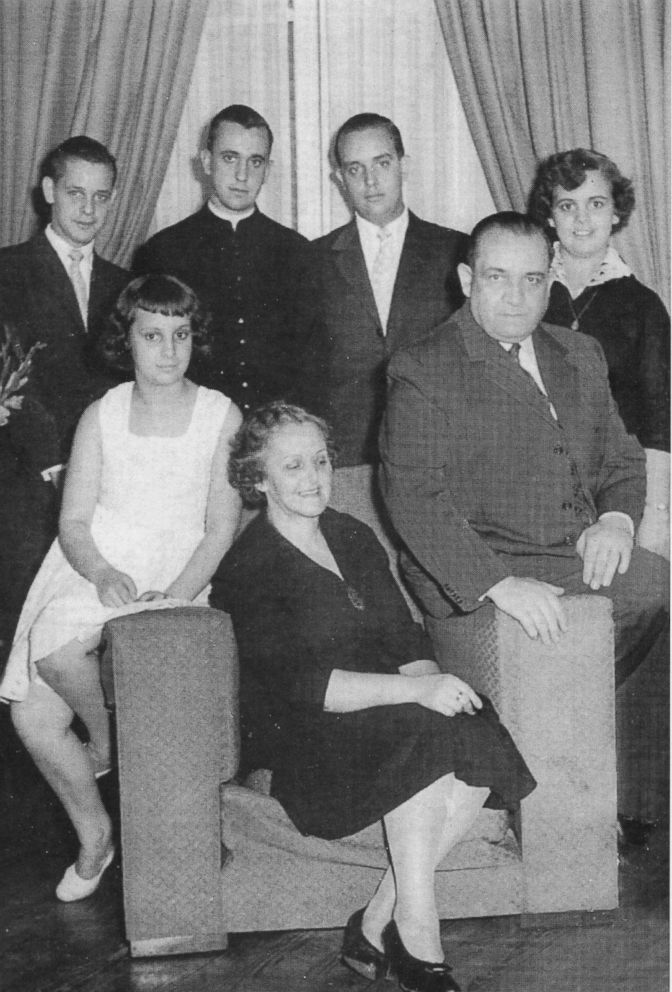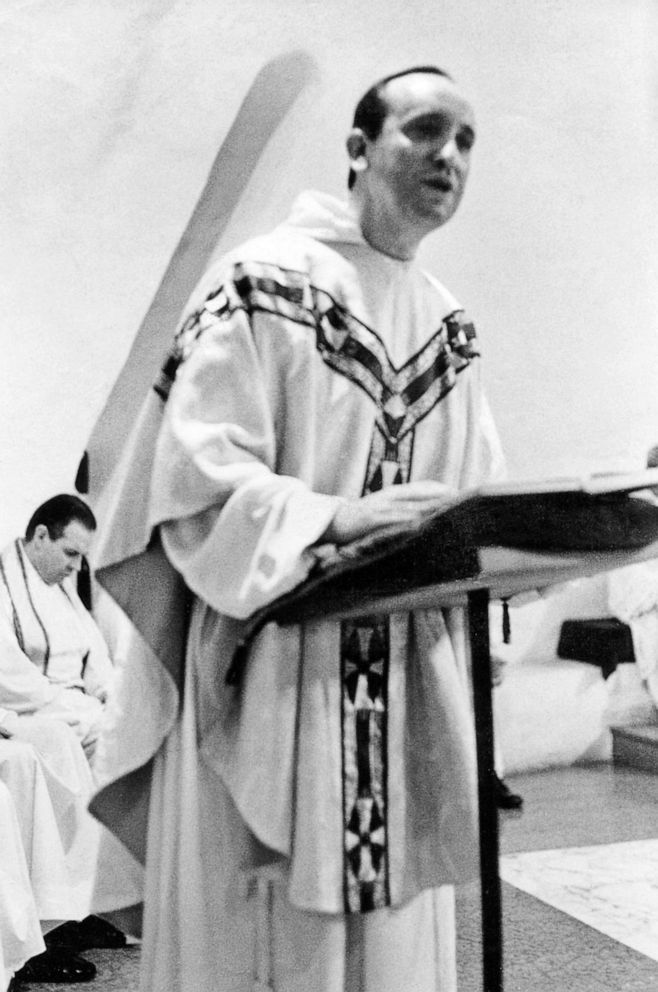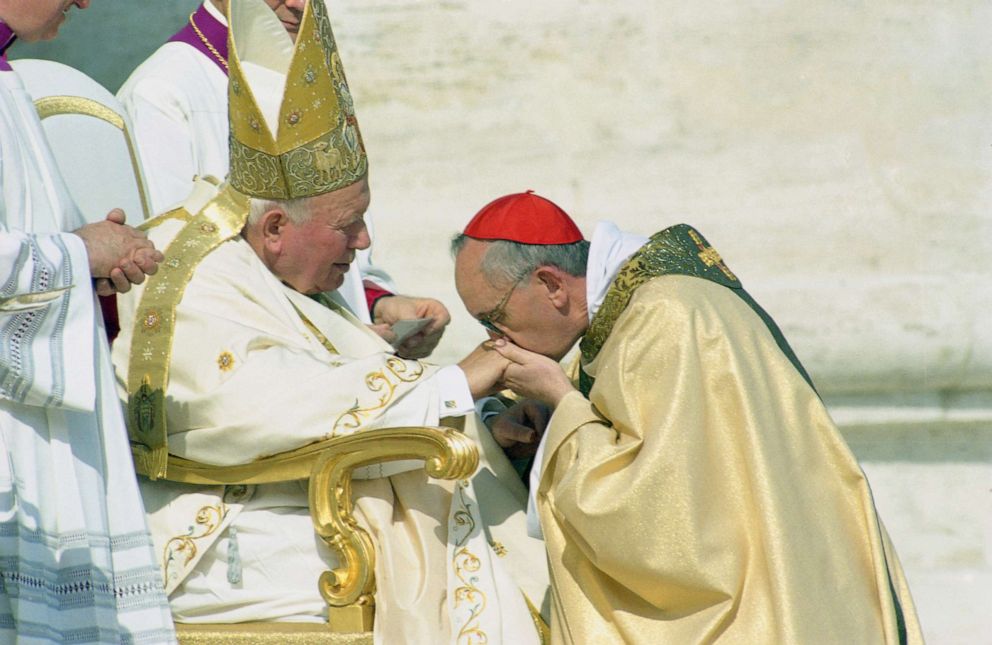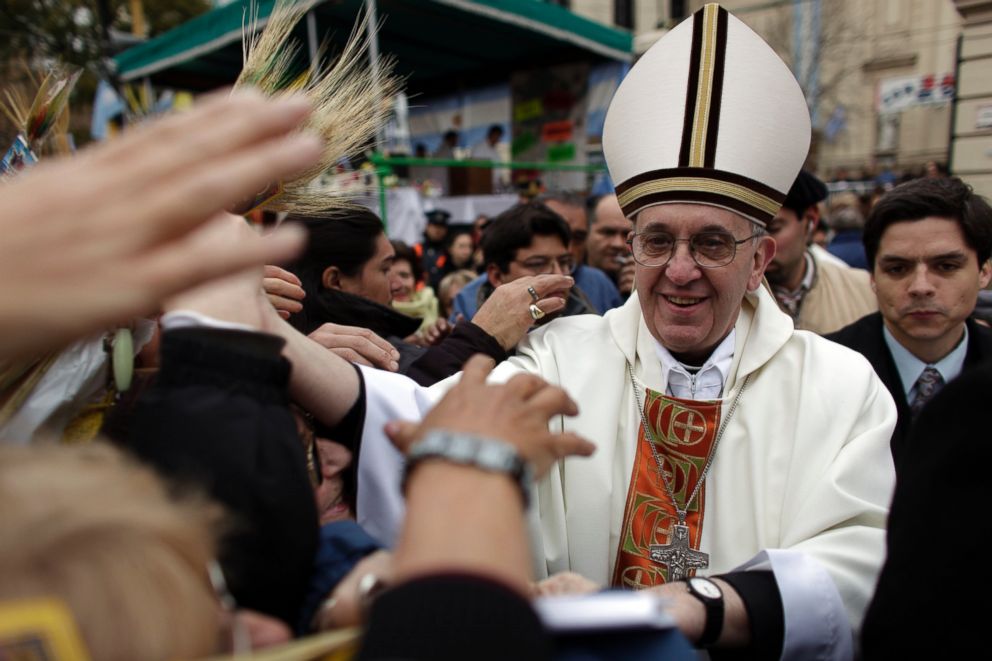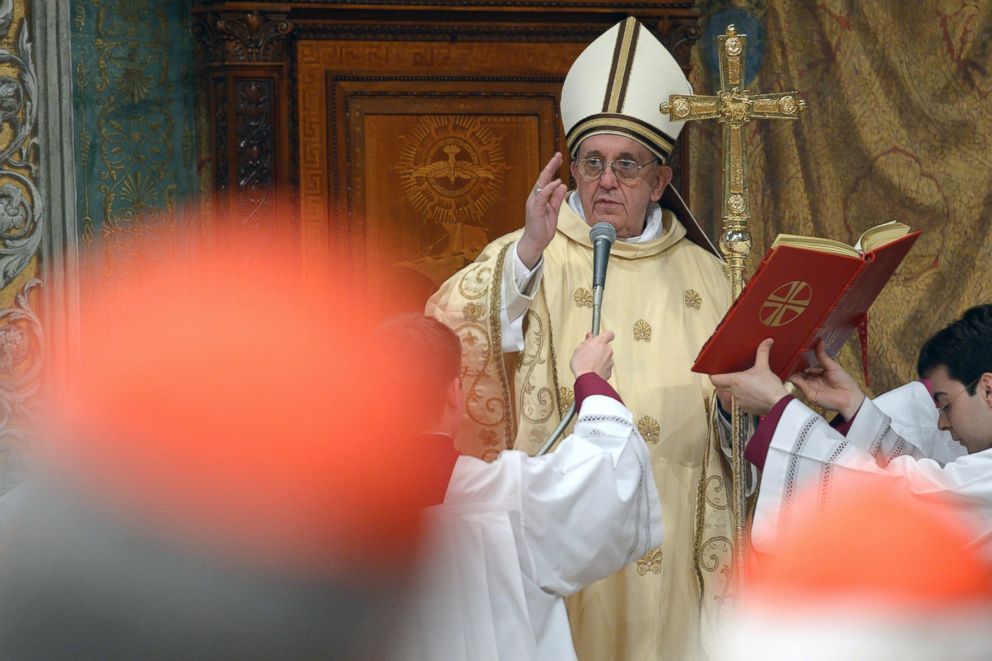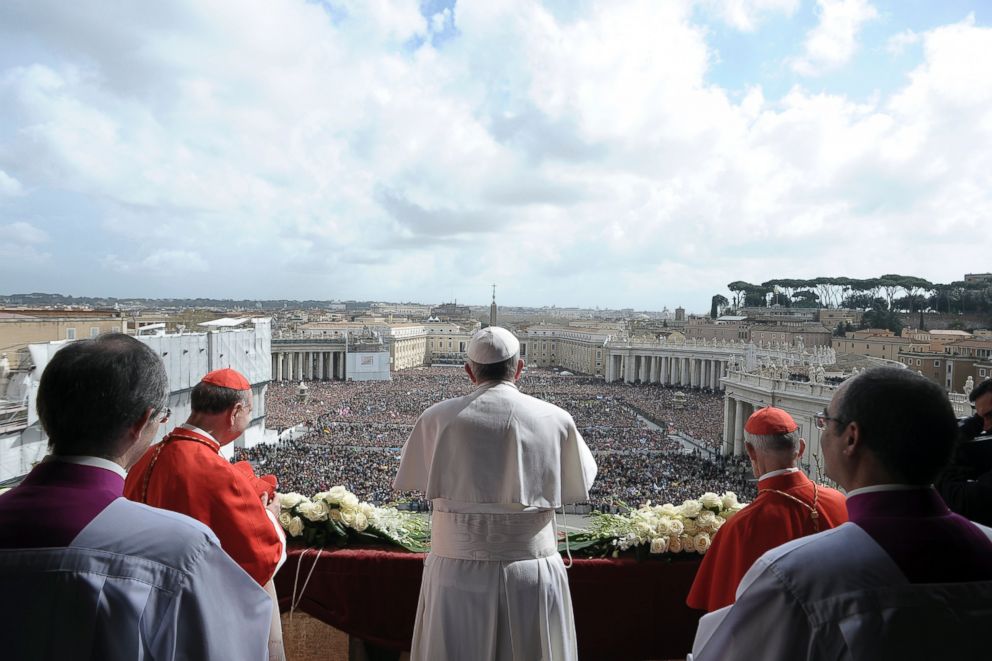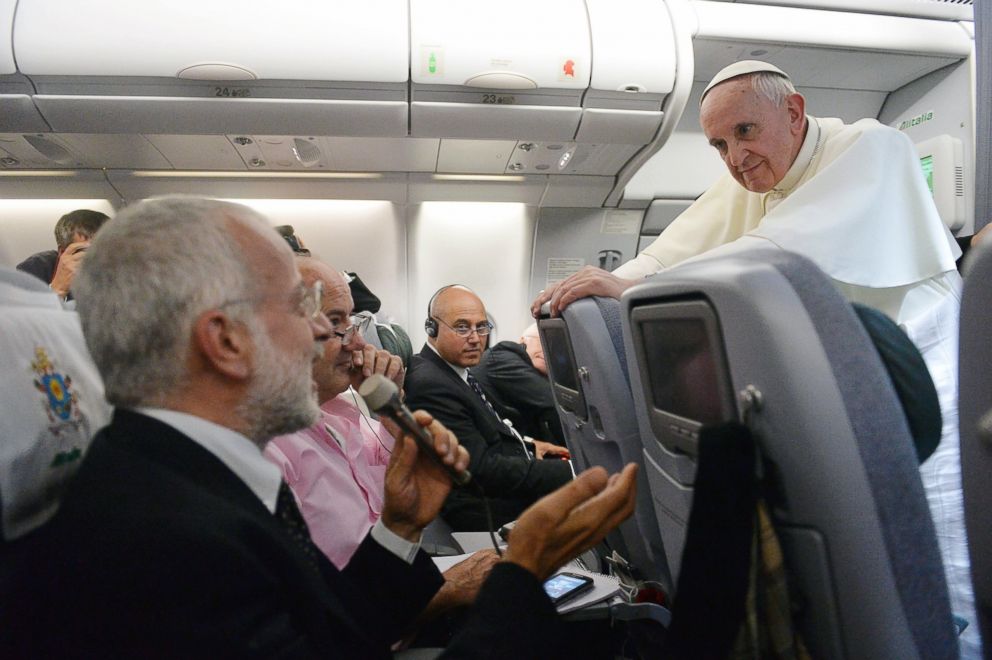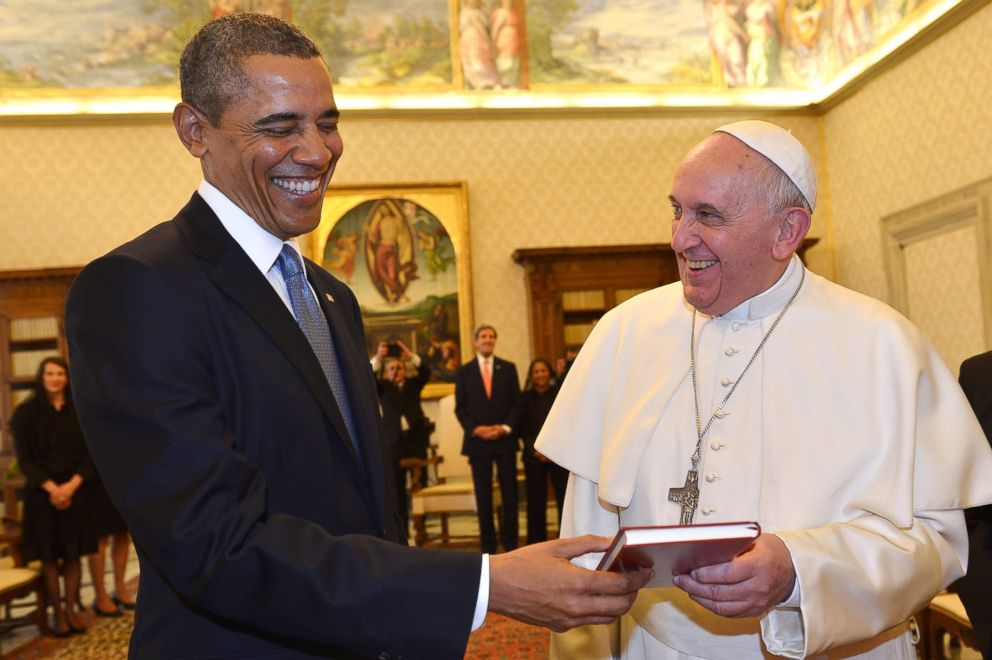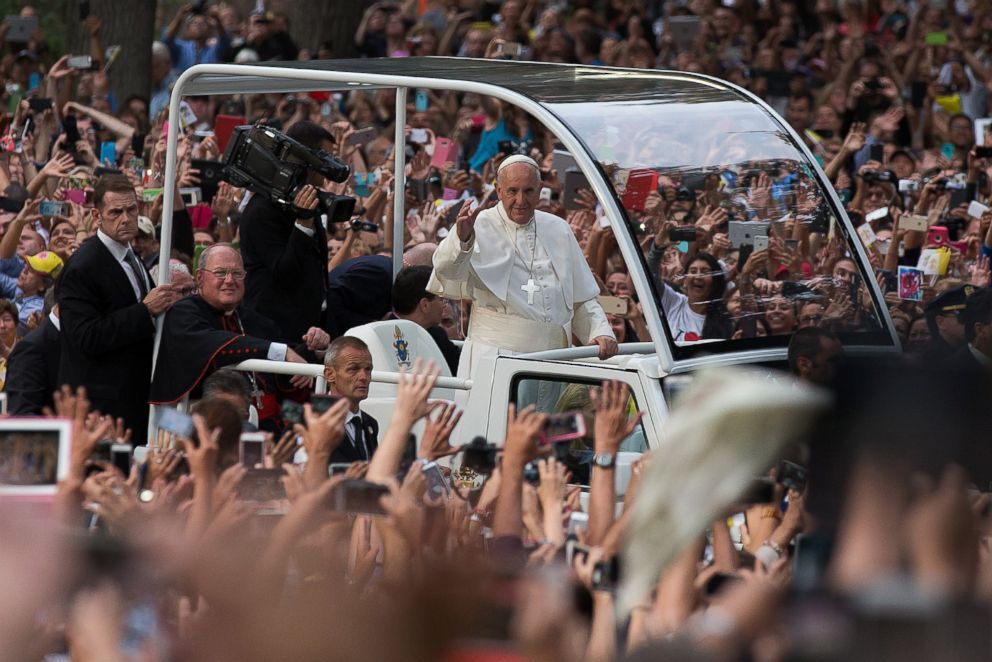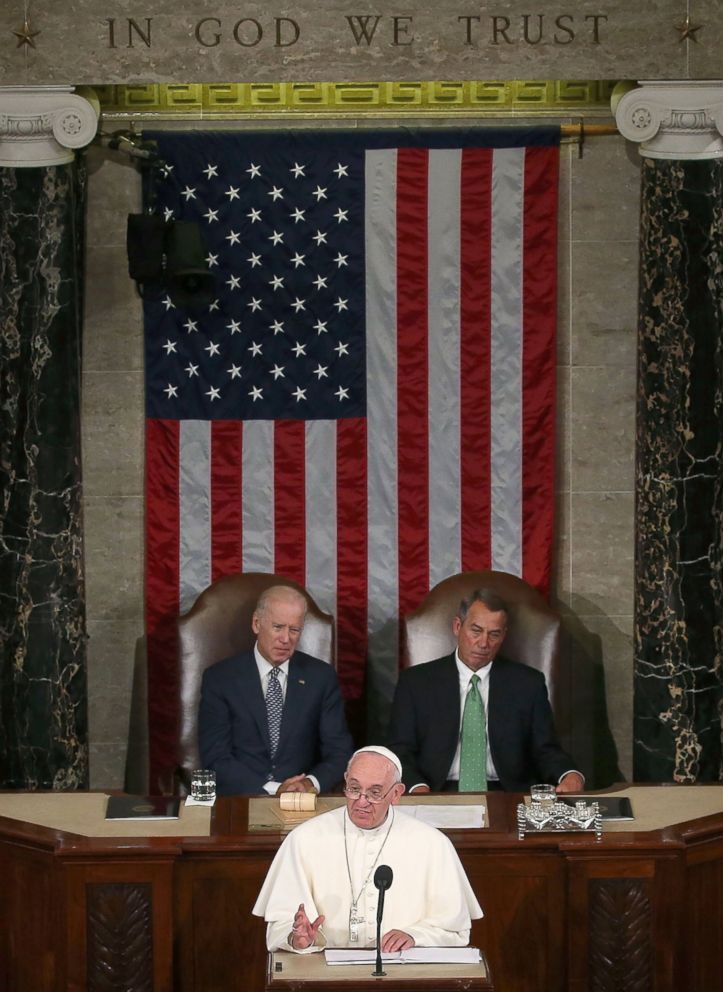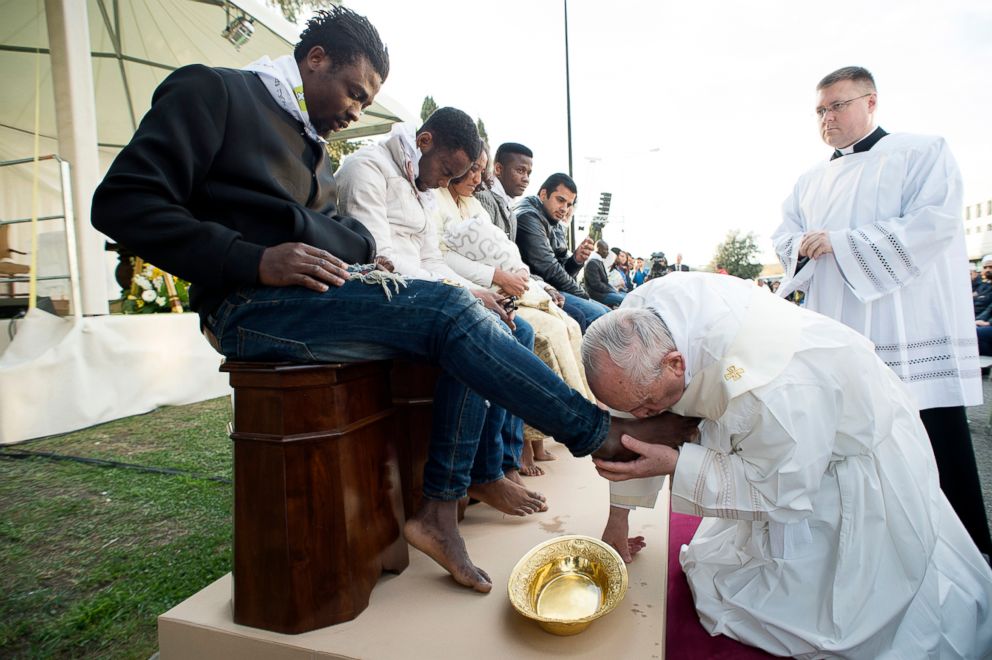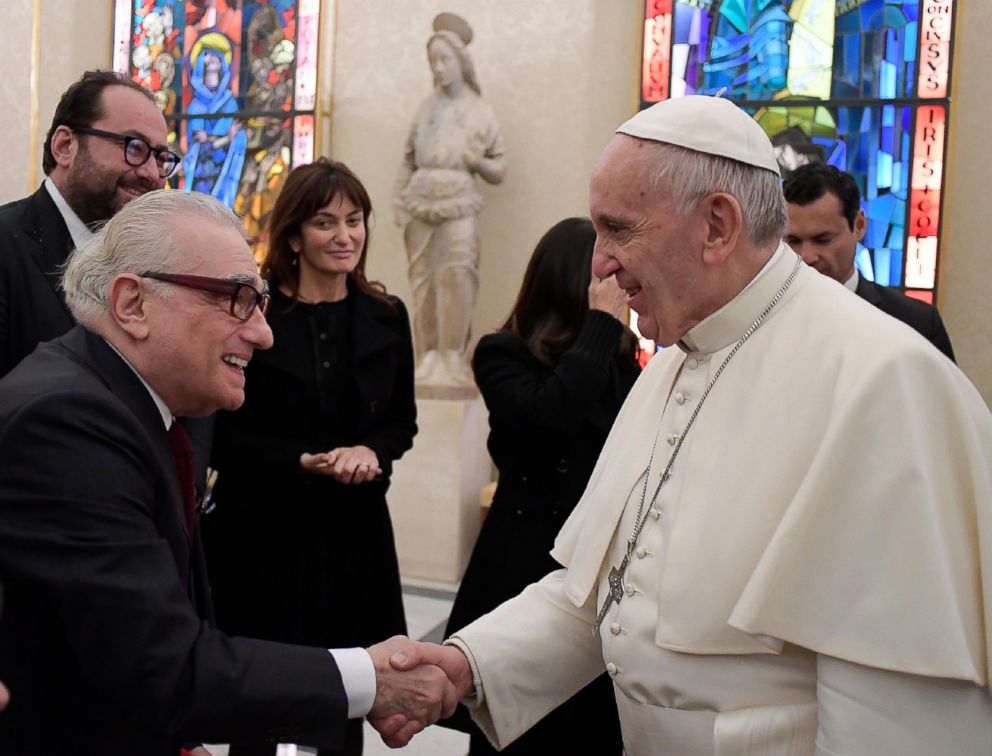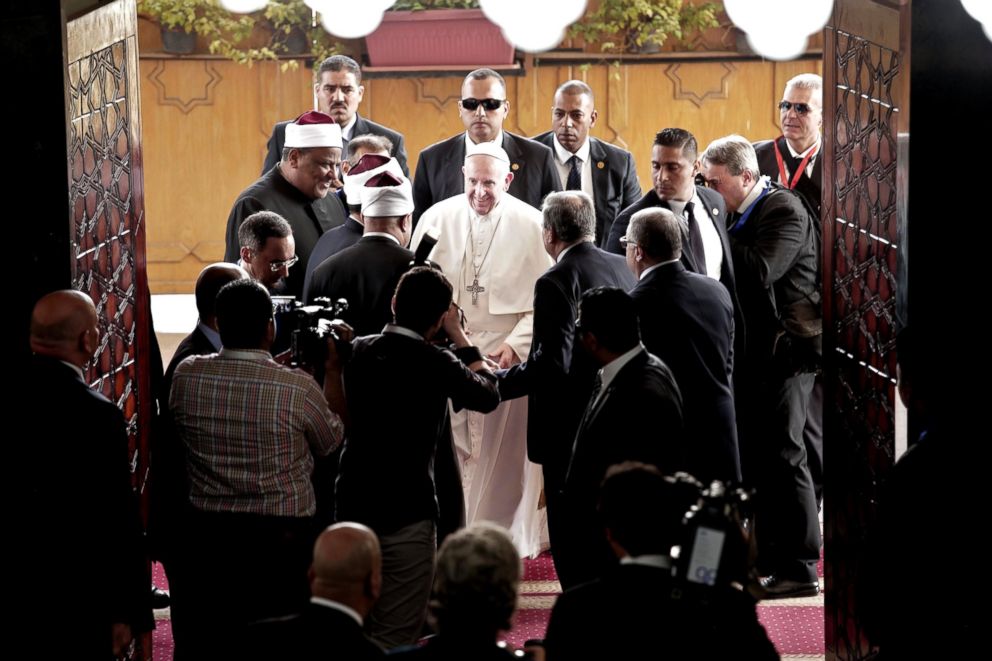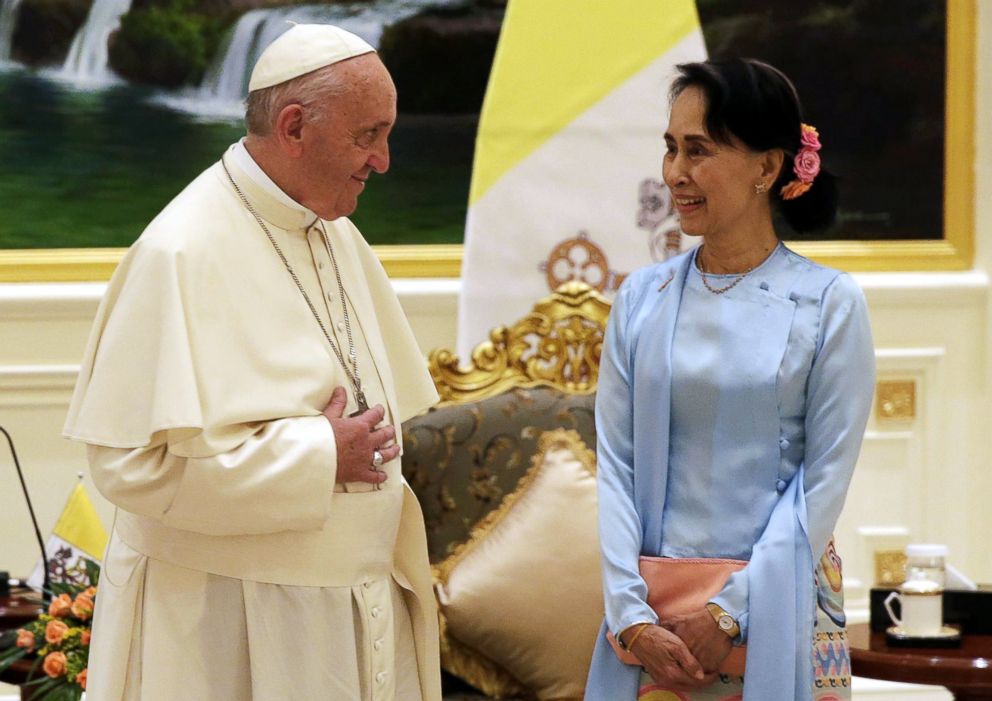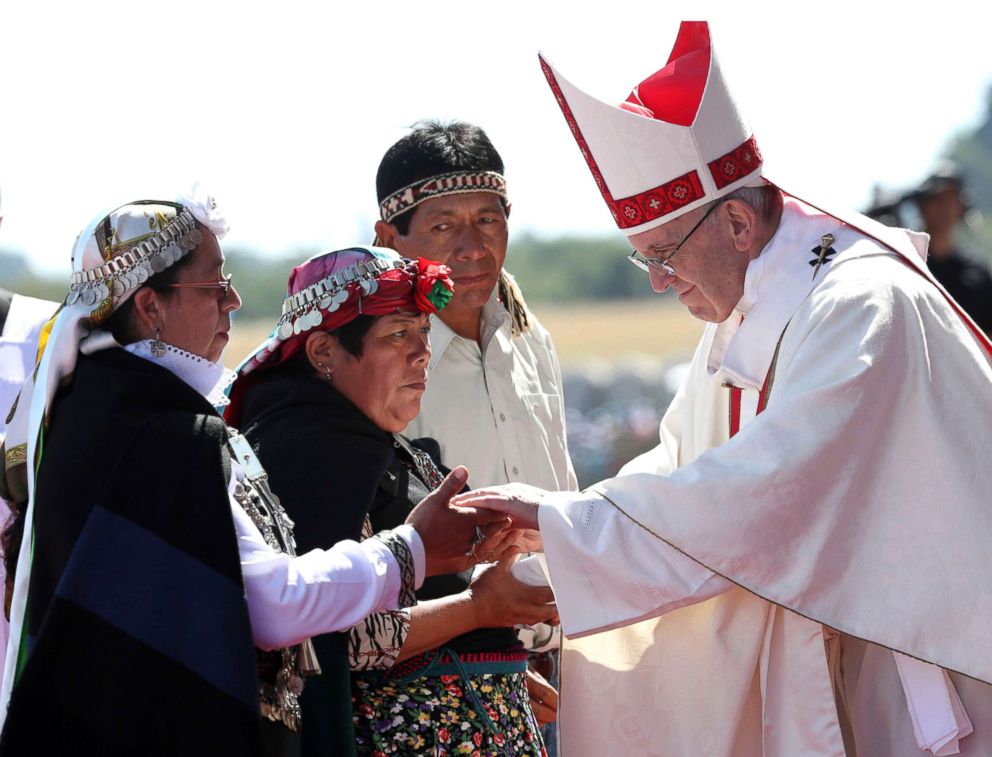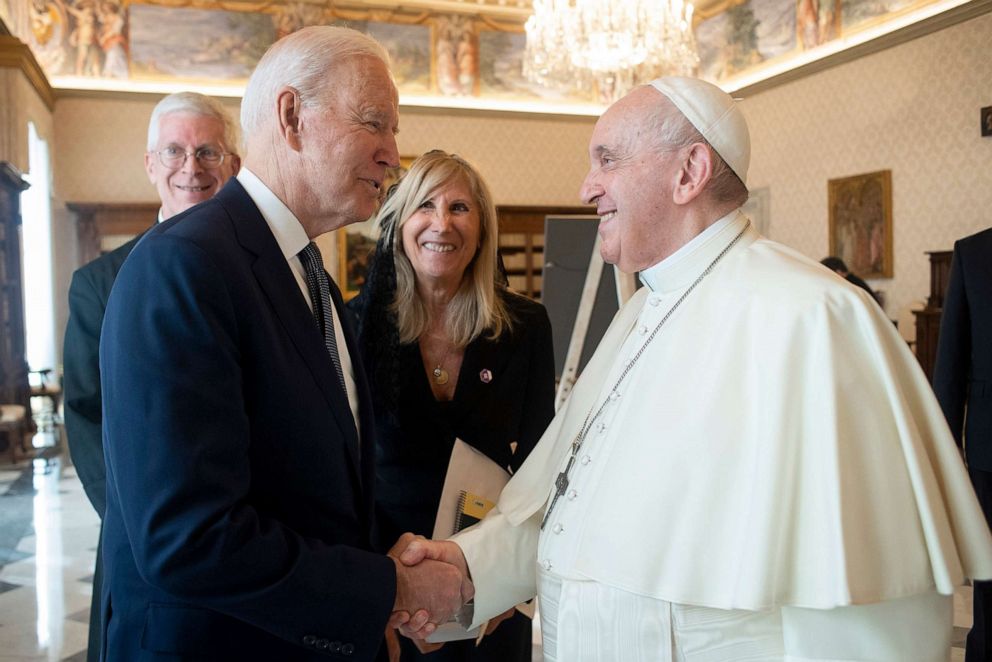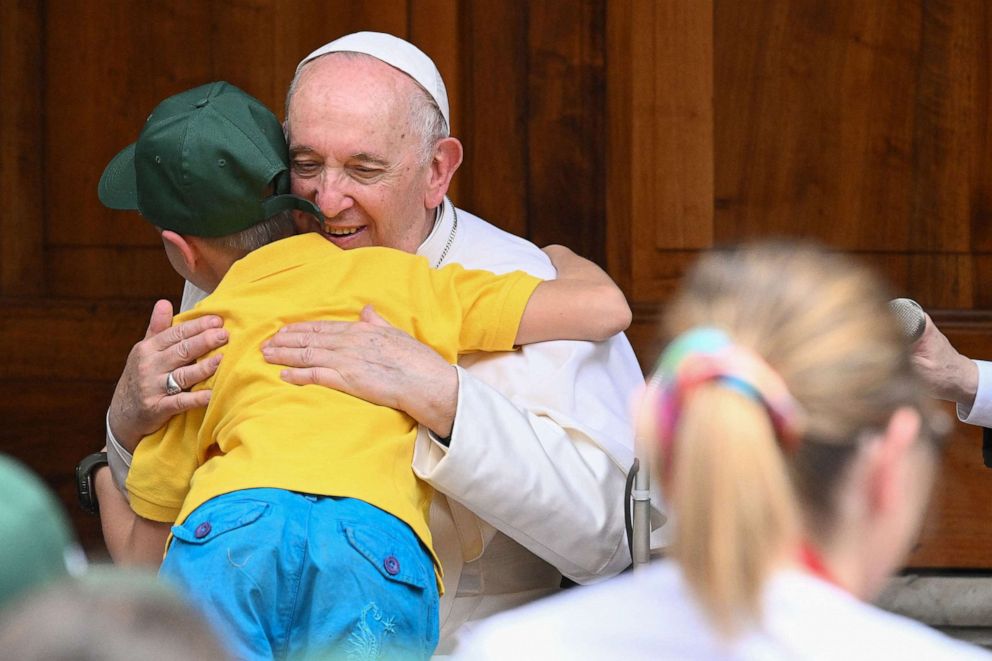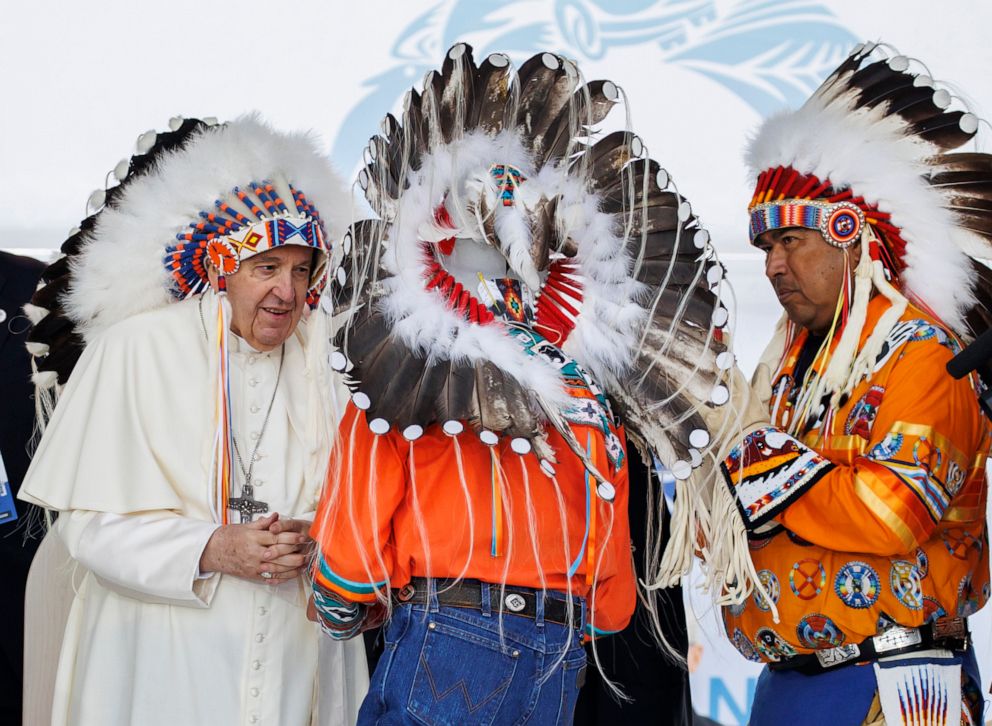Warned it could inflame tensions, Pope Francis avoids word 'Rohingya' in plea for peace in Myanmar
The pope had been warned that the term could inflame the desperate situation.
— -- After much speculation, Pope Francis did not use the word "Rohingya" in a speech Tuesday in Myanmar, instead emphasizing religious tolerance amid the country’s ongoing crackdown on the Muslim minority, which has included mass shootings, systemic rape and the burning of villages by the armed forces.
He had been warned that the term could inflame the already desperate situation because the Burmese authorities regard it as a political term for a group they do not recognize as indigenous to Myanmar.
Instead, Francis focused on a bigger picture of social inclusion. "Myanmar has been blessed with great natural beauty and resources, yet its greatest treasure is its people, who have suffered greatly, and continue to suffer, from civil conflict and hostilities that have lasted all too long and created deep divisions," he said.
He continued, "As the nation now works to restore peace, the healing of those wounds must be a paramount political and spiritual priority. I can only express appreciation for the efforts of the government to take up this challenge, especially through the Panglong Peace Conference."
Pope Francis through the years
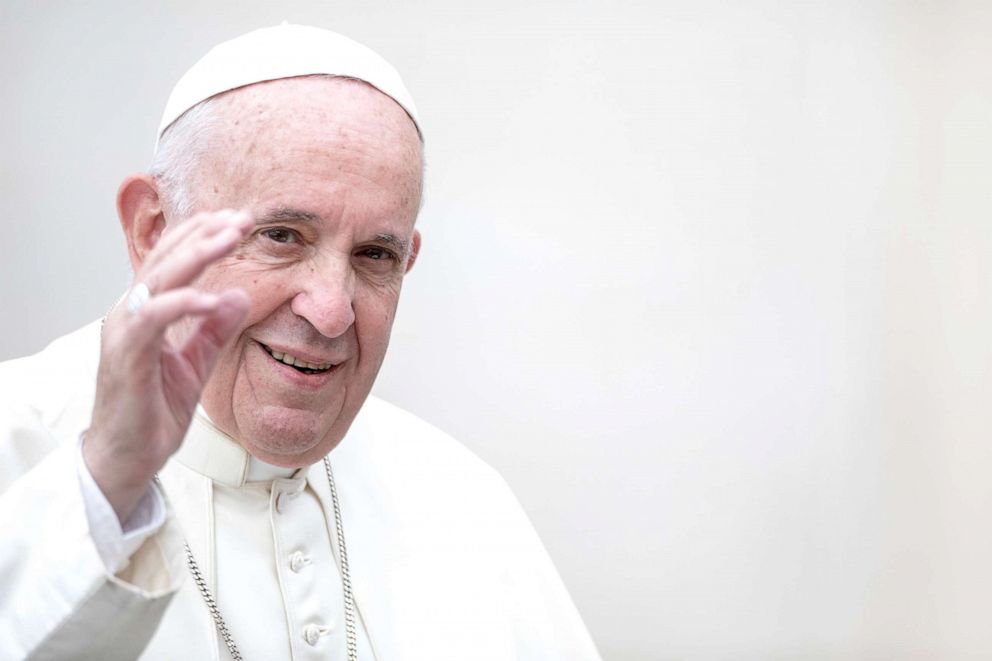
There are many ethnic groups in Myanmar who have all suffered various levels of persecution over many years of military dictatorship. The peace process Francis referred to is one that embattled leader Aung San Suu Kyi has championed — though her efforts to bring democracy to the country have been overshadowed by her reluctance to speak out in defense of the Rohingya.
She spoke alongside Francis today, hoping perhaps to regain some of the moral authority she has lost in this crisis.
His message was one of inclusion and respect without mentioning the humanitarian crisis facing the people of Rakhine state specifically.
"The future of Myanmar must be peace, a peace based on respect for the dignity and rights of each member of society, respect for each ethnic group and its identity, respect for the rule of law, and respect for a democratic order," he said.
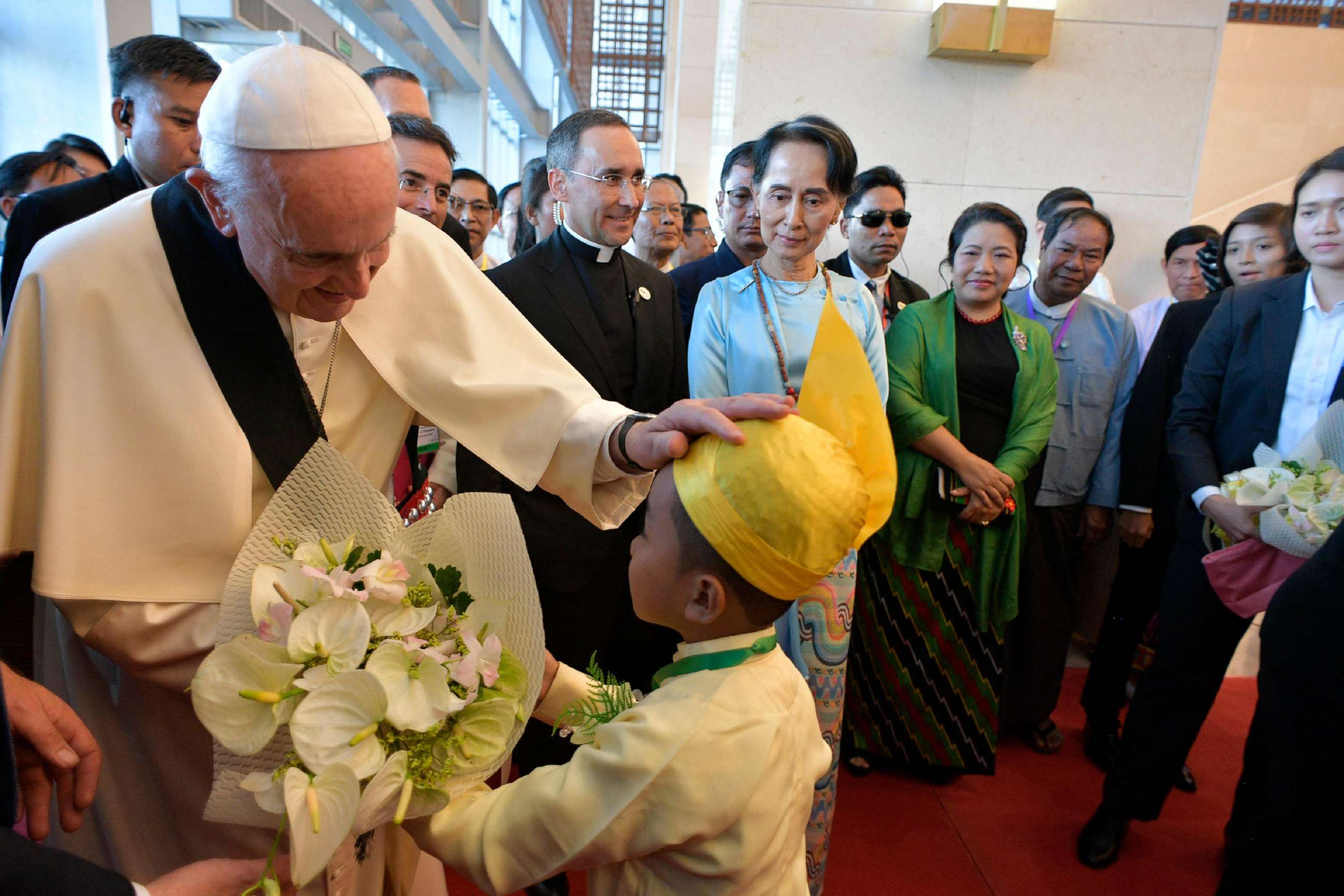
He also spoke about the role he believes all religions play in bringing peace — a possible plea for this majority-Buddhist nation to allow space for other faiths.
"Myanmar's religious communities have a privileged role to play. Religious differences need not be a source of division and distrust but rather a force for unity, forgiveness, tolerance and wise nation-building," he said.
Whatever words he uses, Francis hopes that his presence here will be enough to help build bridges. He is the first pope ever to visit the country.
